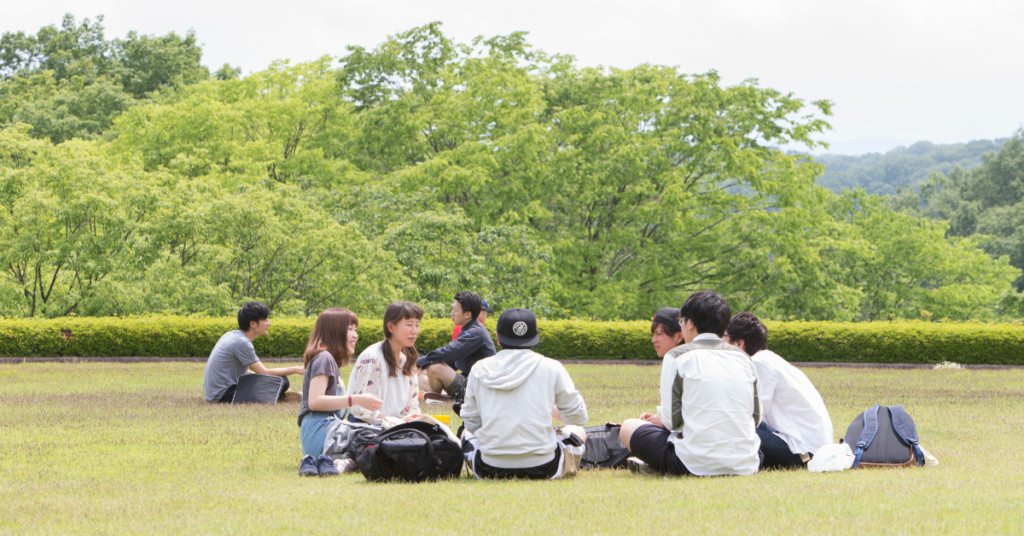Japan offers an extensive range of academic programs for students. While there are always more traditional fields of study like business, marketing, and hospitality, there are also more unconventional options like Shinto, manga, or sustainable tourism. One incredible benefit of studying abroad in Japan is the variety of options available.
Why does Japan offer unique majors?
Japan’s distinctive cultural heritage is reflected in the specialized academic programs offered by its universities. There are fields of study dedicated to subjects like Shintoism, East Asian history, traditional Japanese arts, robotics, and more. For students interested in unique Japanese majors, Japan is the perfect place to pursue these niche-interest studies in their country of origin.

Schools offering unique majors
Kokugakuin University, a university with campuses in both Tokyo and Yokohama, offers a degree in Shintoism. Buddhism and Shintoism are the two dominating religions in Japan and, while Buddhism can be found throughout the world, Shintoism is a uniquely Japanese religion and acts as the foundation of most Japanese traditions and culture. At Kokugakujin, students studying Shinto examine its essence as a religion and cultural significance in Japan.
Yokohama Design College, a vocational school specializing in visual and art design, offers two-year programs in visual design, manga, and fashion. Within the fashion program, students learn both fashion design and fashion business, offering a practical, real-world skillset. In the manga program, students learn both analog and digital techniques, along with a host of other important skills for the field. The visual design program covers both graphic and product design, from practical to rigorous academic training.
Ritsumeikan Asia Pacific University (APU), a university located in Beppu, Oita in Kyūshū has a College of Sustainability and Tourism where you can earn a bachelor’s degree in the subject. APU was the first university in Japan to merge environmental science programs and tourism/hospitality into one single program. Their program is internationally recognized, and has earned the UNWTO TedQual accreditation which is rare worldwide. This recognition shows that APU’s program meets global standards for quality in tourism and sustainability education.
Are Japanese degrees recognized internationally?
Japanese universities are regulated by MEXT (the Ministry of Education, Culture, Sports, Science, and Technology), which means that degrees earned in Japan — even niche programs and unique majors — are recognized globally. Thus, degrees earned in Japan are both officially accepted domestically and internationally.
Your degree will carry the same academic weight as degrees obtained from other accredited universities around the world. Regardless of your future career path(s), your Japanese degree is completely valid and will be seen as respected and legitimate. Specialized programs with unique majors are no exception — they also have to follow the same international credit systems and academic frameworks.

What are other benefits of studying in Japan?
Aside from the benefits you can reap from a world-class education, there are a plethora of reasons to study in Japan. Many universities have English-taught programs, which allow international students to acquire Japanese university degrees without an advanced knowledge of the language. Additionally, these programs usually encourage students to learn Japanese alongside the degree and provide support for them to achieve their language goals. These programs include the unique majors that are offered in Japan.
Another benefit from studying in Japan is the affordability of it. Higher education in Japan is much more affordable than in many other countries. For example, tuition for Japanese university degrees equals a fraction of the cost of American ones. There are even scholarships available for international students, provided by MEXT, which covers tuition, travel, and living expenses. And, although the cost of living has been on the rise, Japan is still a lot more affordable to live in when compared to many Western countries.
One of the primary reasons people choose to live and study in Japan, rather than simply visit, is the exciting opportunity for cultural immersion. Given that university or vocational programs take a few years to complete, you will have the chance to experience a much more immersive life in Japan. You’ll make friends with Japanese people, eat local foods, learn more “local” and native Japanese, travel a bit, and overall, experience what it’s actually like to live in Japan. For most, this is a massive benefit to completing your education in a different country — to experience a new culture, language, and life in a society different from your own.
Ready to discover your new life as a student in Japan?
Choosing a major and a university is a big decision for anyone. Should your interests lie in religious studies, visual arts, or sustainability, there’s a program in Japan waiting for you. For help with those decisions and for other insights and tips, follow our blog and explore our universities page to learn more. We are here to help you study abroad in Japan and begin your next academic adventure.




